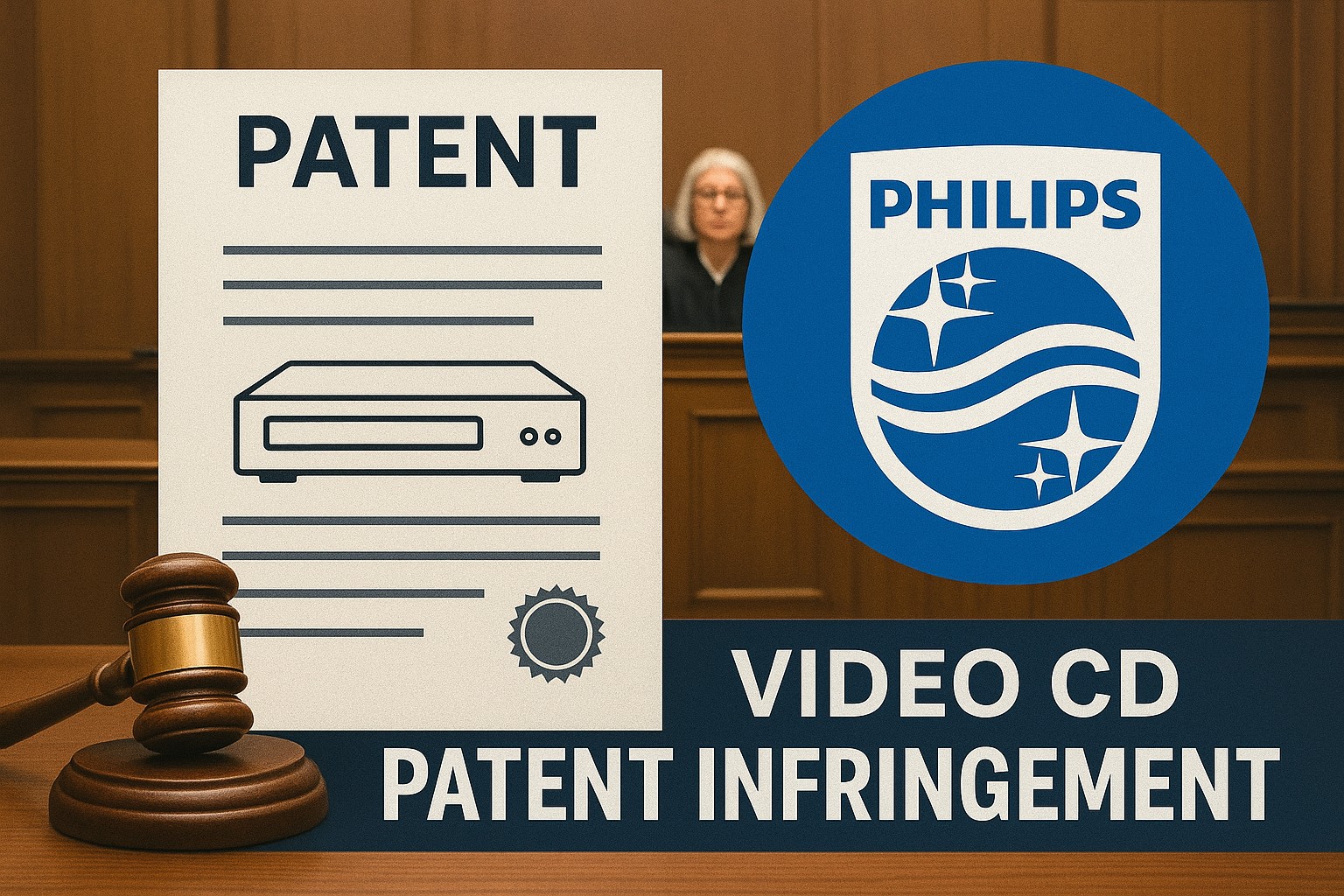Court says company failed to prove infringement; 21-year legal battle ends
The Delhi High Court has dismissed a 21-year-old patent infringement suit filed by Philips against a Delhi-based optical disc manufacturer. The court ruled that the electronics giant failed to prove that the defendants had infringed its patent related to Video CD (VCD) technology.
Philips had filed the case in 2004, alleging that BCI Optical Disc Limited and others had copied its patented system used in VCDs. The company claimed its technology covered a system involving a transmitter, receiver, and transmission medium used in encoding and decoding digital video content.
Justice Prathiba M. Singh, who heard the matter, held that Philips could not establish infringement of each element of its patent claim. The court said the plaintiff did not map the essential components of the patent to the processes used by the defendants.
Patent expired during litigation
The judgment noted that Philips’ patent had already expired in 2010, during the pendency of the case. The expiry meant that the company could no longer claim monopoly rights over the technology.
The court observed that even before expiry, Philips had not produced adequate technical evidence to prove that the defendants’ products or systems contained the same features as its patented invention.
“The plaintiff has failed to prove that the defendants’ process incorporates all the essential elements of the patented system,” the court said.
Replication process not infringement
The defendants argued that they were only replicating discs from master copies supplied by other sources. They stated that they did not create or encode the original master discs that contained the video data.
The court accepted this argument. It ruled that the process of replication—simply copying data onto new discs—does not amount to infringing a system patent that relates to data transmission or encoding.
Justice Singh said the act of replication lacked the “functional steps” that formed part of Philips’ patented method.
Philips targeted wrong parties
The court also remarked that Philips should have taken legal action against the companies that created the original master discs instead of the replicators.
It said Philips had failed to demonstrate how the replication process used by BCI Optical involved any step that used the patented technology.
This observation highlighted the court’s focus on identifying direct infringers rather than secondary participants in the supply chain.
Significance of the ruling
The decision reinforces the principle that in patent infringement suits, the burden of proof lies on the patent holder. A plaintiff must demonstrate how every element of a patent claim is used by the alleged infringer.
Legal experts say the ruling will influence how multinational corporations approach patent enforcement in India. It underlines the importance of detailed claim mapping and technical evidence before filing infringement suits.
The case also demonstrates the practical challenge of enforcing technology patents that expire during lengthy litigation. Once a patent expires, it loses protection, limiting the remedies a company can seek.
Conclusion
The Delhi High Court’s ruling marks the end of a legal battle that began more than two decades ago. Philips’ attempt to enforce its Video CD patent has ended in defeat, with the court holding that the company failed to establish infringement or provide sufficient proof.
The case highlights a broader issue in India’s patent litigation landscape — the need for timely resolution and stronger technical documentation in complex technology disputes.

